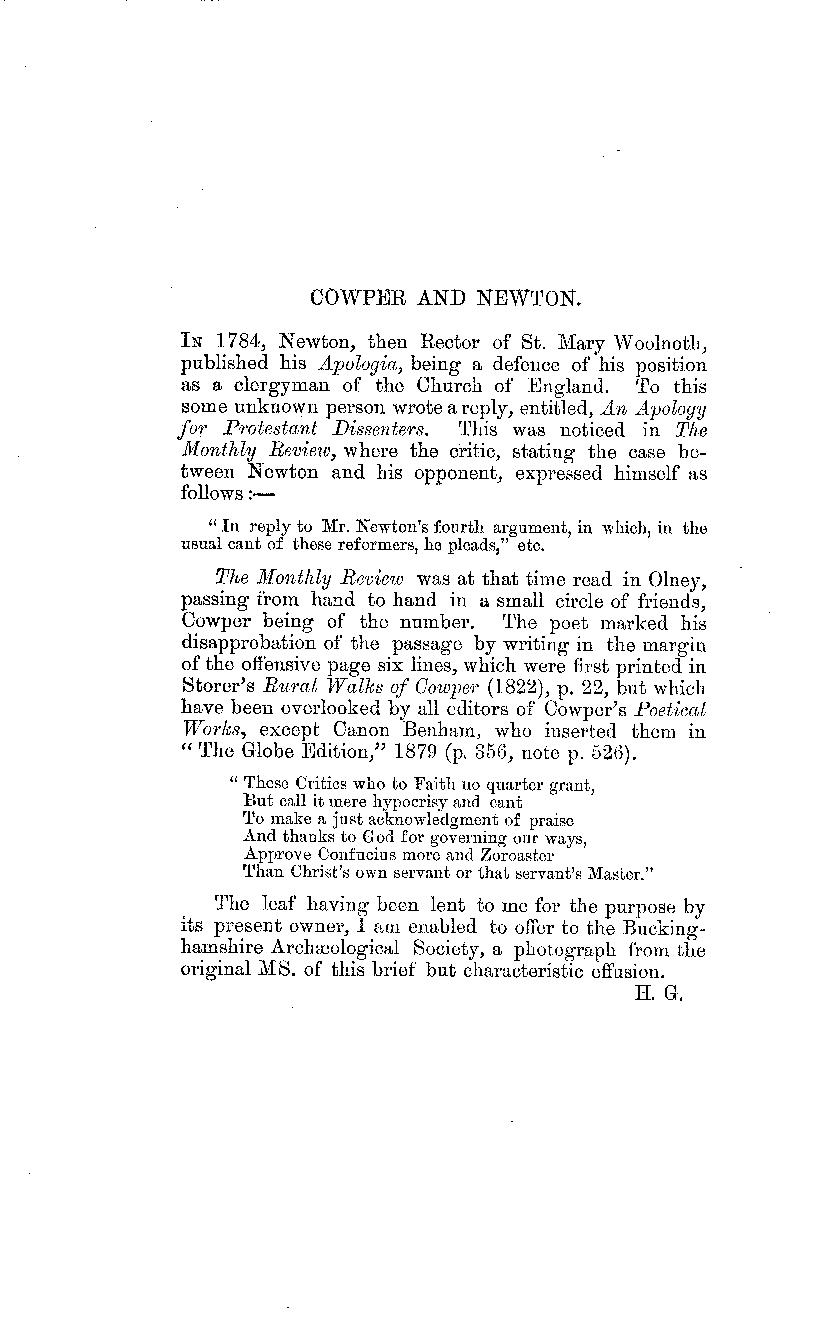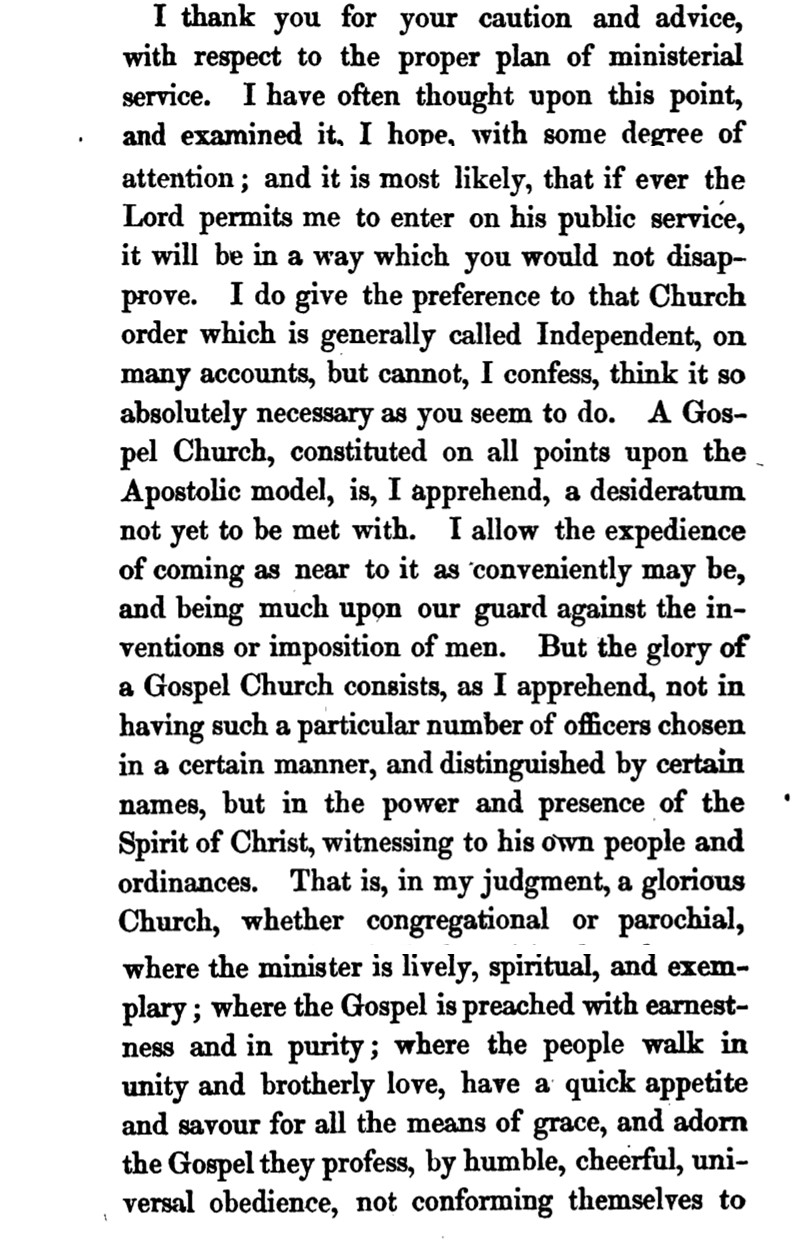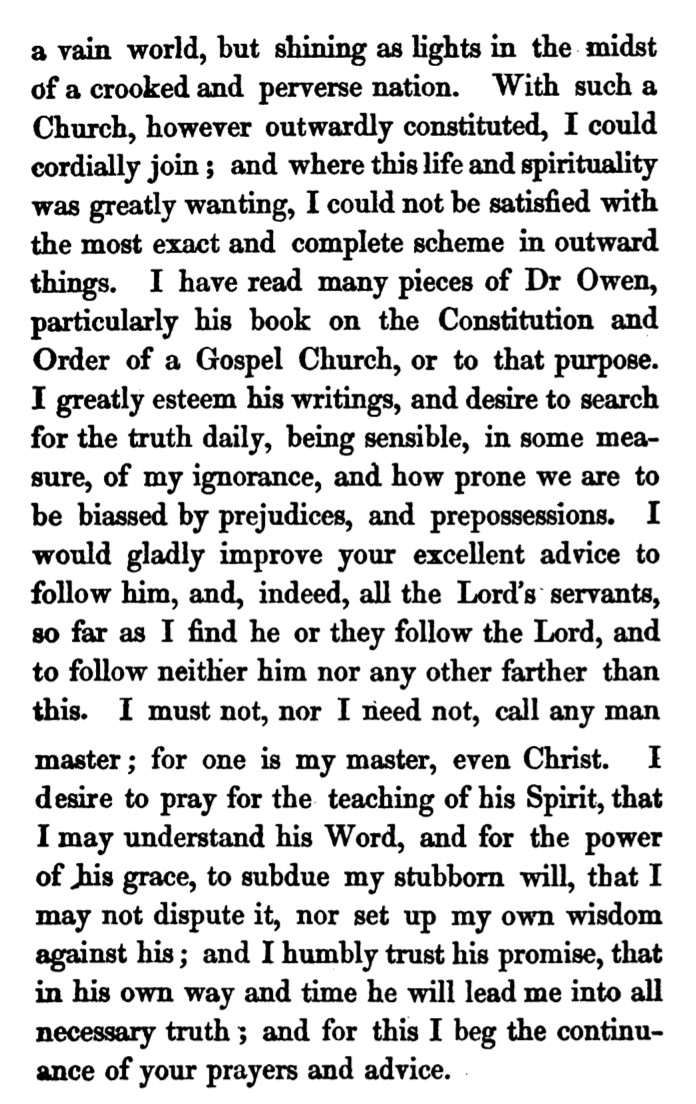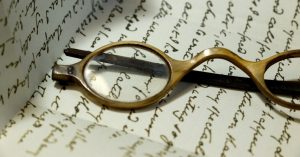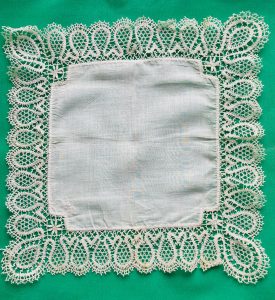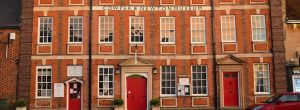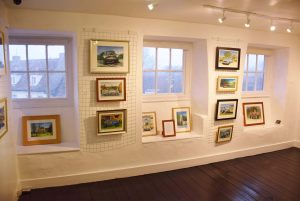In 1893, the Buckinghamshire Archaeological Society published an article in ‘Records of Buckinghamshire’ which contained an image of a page from ‘The Monthly Review.’ It was of interest to the Society because on the page William Cowper had ‘marked his disapprobation’ to a critic’s comment in six lines of poetry.
The article in ‘The Monthly Review’ was itself a review of both Rev John Newton’s ‘Apologia. Four Letters to a Minister of an Independent Church by a Minister of the Church of England’ and a response to the publication of ‘Apologia’ being ‘An Apology, and a Shield for Protestant Dissenters. Four Letters to The Rev. Mr Newton by a Dissenting Minister’.
BAS has kindly allowed us to reproduce their article here. We have updated the 1893 article by adding further information and sources from the Cowper & Newton Museum Collection.
Clicking on the page image allows you to enlarge the size of the image and read the original article.
In 1784, Rev John Newton published a pamphlet in which he sought to explain why he chose to become a Minister in the Church of England and not a Dissenting* Minister in an Independent Church.
Many people could not understand why Newton had made this decision. After all, from the time of his experiences in the storm aboard the ‘Greyhound’ until leaving for Olney from Liverpool in 1764, he clearly gained inspiration from Baptist and Independent preachers in Liverpool, London and Yorkshire. He had also been initially rejected for ordination by the Church of England.
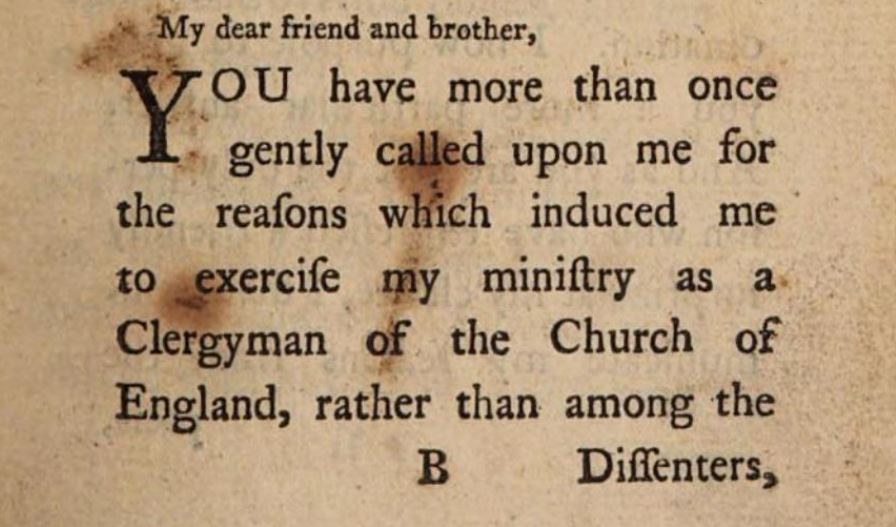
The letters in Newton’s ‘Apologia’ are dated to 1st March 1784 and by June 1784 Dr Henry Mayo, pastor of the Independent congregation in Nightingale Lane, London (1) had published his response.
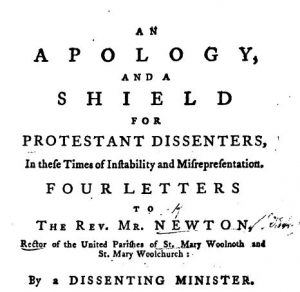
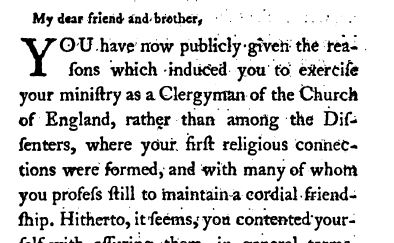
A Page from ‘The Monthly Review’ and William Cowper’s Response to the Critic
‘The Monthly Review’ carried an article which contained a review and comment on both pamphlets. Henry Gough, in his 1893 article, published a photograph of a page from ‘The Monthly Review’ on which he says William Cowper had written his response to one of the comments.
You will find links to the full ‘Monthly Review’ article and to Storer’s ‘Rural Walks of Cowper’ mentioned in the article in the Further Reading section below.

The lines written by William Cowper on a copy of ‘The Monthly Review’ transcribed in ‘The Rural Walks of Cowper’ .
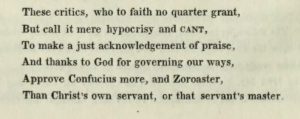
The letter extract below is from John Newton to Robert Jones, written from Liverpool and dated 28th May 1762. At this point in Newton’s life, he had been turned down by the Church of England in his application to become a Minister.
Also in that year, one of Newton’s Gospel friends, Benjamin Fawcett, a Presbyterian in Kidderminster, asked him to tell him more about his life. Copy letters of the eight letters which ensued are owned by the Morgan Library and Museum (USA).
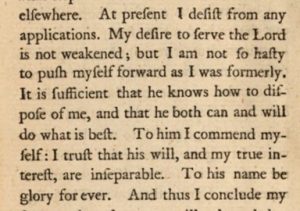 It was these eight letters which were then read by the Rev Thomas Haweis, expanded by Newton and published in 1764 as ‘The Authentic Narrative’.
It was these eight letters which were then read by the Rev Thomas Haweis, expanded by Newton and published in 1764 as ‘The Authentic Narrative’.
The final letter in the ‘Authentic Narrative’ is dated February 2nd 1763.
By the time the ‘Authentic Narrative’ was published, Newton’s situation had changed and he was now a Minister at the Church of St Peter & St Paul, in Olney, Buckinghamshire.
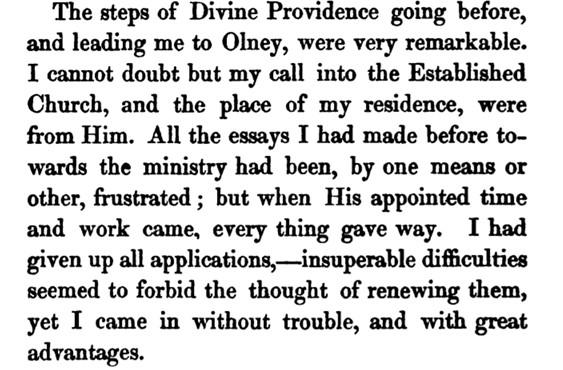
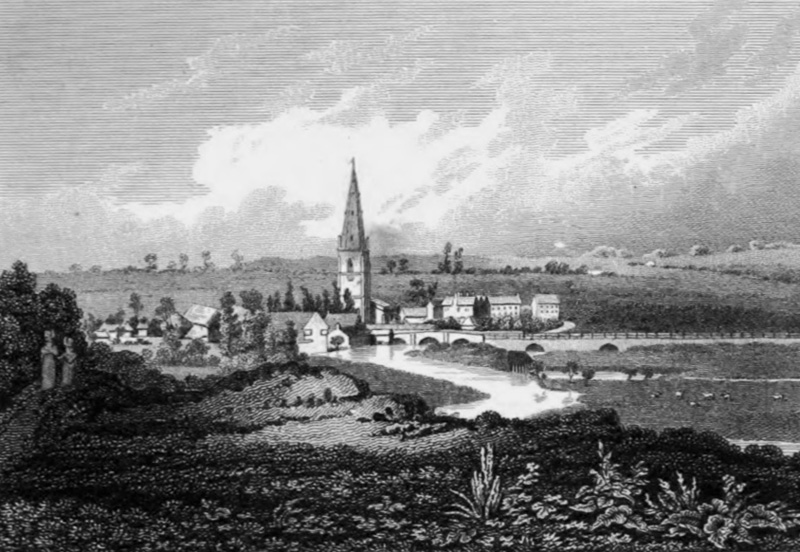
Cowper & Newton Collection
Silhouette of John Newton
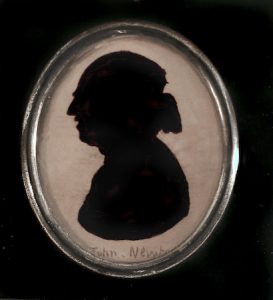
‘At the Archdeacon’s Visitation at Stony Stratford in 1765 appeared a minister of Olney, one Mr Newton, a little odd looking man, of the methodistical order, & without any Clerical Habit … bred a Dissenter, son of a Sea Captain …’
The Rev William Cole of Bletchley transcribed the unpublished History of the Newport Hundred by local antiquarian Brown Willis. He added his own notes about Newton
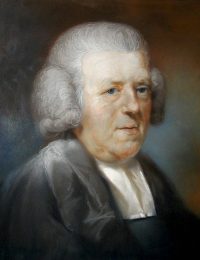
John Newton Dissenting Minister or Mighty Good Churchman
‘I know not how it is, I think my sentiments and experience are as orthodox and Calvinistical** as need be, and yet I am a sort of speckled bird among my Calvinist brethren. I am a mighty good churchman, but pass amongst such as a Dissenter in principle. On the other hand, the Dissenters (…) think me defective, either in understanding or in conscience, by staying where I am; while there is a middle part called Methodist, but neither do my dimensions exactly fit with them.’
Letter from Rev John Newton to Rev William Bull, Pastor of the Independent Church, Newport Pagnell, 1778
(*) Dissenter: Another name for Nonconformist. John’s mother was a ‘Dissenter’ and John attended the Old Gravel Lane Independent Meeting House in Wapping, London as a young child.
(**) Calvinism is the theology advanced by John Calvin, a Protestant reformer in the 16th century. It became a core belief of several of the nonconformist churches; including the Methodist wing of the Church of England that followed the preaching of the evangelist Rev George Whitefield and the stance of Lady Selina Hasting’s powerful “Huntingdon Connexion”.
- Nonconformist: A member of one of the Protestant churches outside of the Church of England.
- Methodist: Founded within the Church of England by John and Charles Wesley in 1738. The society broke away in 1784, and grew very rapidly in the 19th Century.
(1) D Bruce Hindmarsh, ‘John Newton and the English Evangelical Tradition’, 1996, Oxford University Press
Further Reading
The Monthly Review or Literary Journal July – December inclusive 1784
Apologia. Four Letters to a Minister of an Independent Church by a Minister of the Church of England
Rural walks of Cowper : displayed in a series of views near Olney, Bucks : representing the scenery exemplified in the poems by Storer, James Sargant, 1822
Letters from John Newton to Robert and Josiah Jones, Cowper & Newton Collection, Buckinghamshire Archives
Twenty-Five Letters, Hitherto Unpublished, ed. Robert & Josiah Jones, Edinburgh: J. Johnstone, 1840
Newton, J. An authentic narrative of some remarkable and interesting particulars in the life of John Newton: Communicated in a series of letters, to the Reverend Mr. Haweis … and by him (at the request of friends) now made public. … 4th ed. London: Printed for J. Johnson.
Letters to Benjamin Fawcett, circa 1762 : manuscript, in the hand of Samuel Cooper, The Morgan Library and Museum
The Cowper & Newton Journal Vol 2, David T. Wood, ‘We are all brother journeymen in one shop’ John Newton as Pastor’

